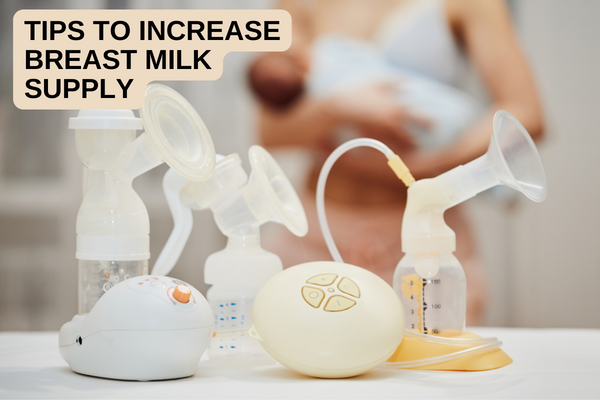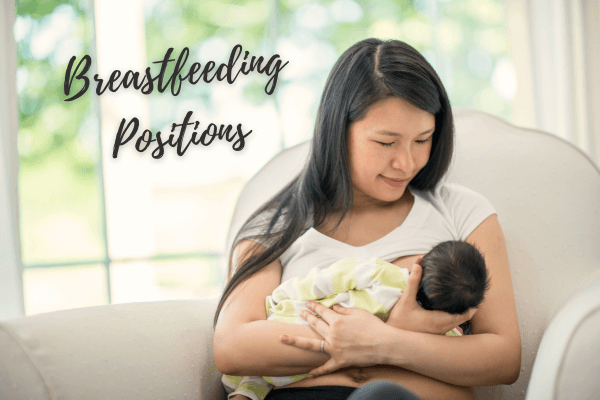Introduction
In recent years, research has begun to shed light on the intriguing relationship between breastfeeding and Postpartum Depression (PPD), suggesting that the act of breastfeeding may offer some level of protection against PPD.
Postpartum Depression(PPD) is when mothers suffer from a state of depression, post-pregnancy. It is a serious mental health issue that impacts a significant number of mothers after childbirth and is treatable with correct and timely diagnosis. With one in seven mothers experiencing this condition, it’s not just a “mom issue” but a societal one as well. Explore the science-backed relationship between breastfeeding and PPD in this informative blog, and learn how making informed choices can benefit maternal mental health.
Consequences of Postpartum Depression
The ripple effects of PPD can be devastating, affecting not only the mother but also the child, family, and even the broader society. For the mother, PPD can mean severe emotional distress, affecting her ability to bond with her baby and disrupting her overall well-being. This emotional turmoil extends to the child, affecting early development, and has a knock-on effect on the family unit. On a societal level, untreated PPD places a strain on healthcare systems and contributes to broader social issues.
Watch & Learn more about Postpartum Depression below-
The Benefits of Breastfeeding
There has been evidence that breastfeeding has positive impacts on both the child and the parent. The World Health Organization and the American Academy of Pediatrics have recommended that children are exclusively breastfed for the initial six months of life.
Breast milk helps protect infants from infections and diseases and it also provides health benefits to the new mother by lowering their risk of various conditions. Breastfeeding mothers have reported reductions in anxiety, stress, and negative mood while displaying a stable sleep pattern and lower blood pressure. New mothers often experience pressures after birth like labor pain, shortage of sleep, and anxiety. Breastfeeding can help them and reduce stress. It also plays a pivotal part in preventing mental health issues from developing.
Breastfeeding and Postpartum Depression
That there could be a relationship between breastfeeding and PPD is becoming increasingly clear through numerous studies. For example, research published in the Journal of Advanced Nursing indicates a lower incidence of PPD among mothers who breastfeed. This could be due to several factors, including hormonal changes and the act of bonding during breastfeeding.
More and more new mothers are suffering due to a variety of factors such as the changes in our social fabric (more nuclear families leading to isolation), separation of mother & baby after birth, birth trauma, and lack of a strong postnatal support system in the postpartum recovery and breastfeeding phases. All of these could be leading to an increase in postnatal depression cases. Helping and supporting a mother and her baby to breastfeed without problems can build confidence in the mother’s ability to care for her baby, directly impacting her mental wellbeing.
Breastfeeding Intention and Initiation
Planning to breastfeed has been shown to have a significant positive impact on maternal mental health. Mothers who intend to breastfeed and are successful in doing so often report fewer symptoms related to PPD. The early initiation of breastfeeding not only benefits the child but also contributes to the mother’s mental well-being by reducing stress levels and promoting bonding.
Breastfeeding and Maternal Mood
Reciprocal Relational Findings
Studies have found that new mothers who breastfeed in the initial two to four months after giving birth are less likely to be diagnosed with postpartum depression. However, mothers diagnosed with PPD at two months are less likely to breastfeed at four months. This clearly highlights that the relationship between breastfeeding and mental health goes both ways. While breastfeeding may alleviate PPD symptoms, a mother’s emotional state can also influence her breastfeeding experience. On the same lines, Postpartum depression is a risk factor for early breastfeeding cessation while negative breastfeeding experiences can also be considered a risk factor for postpartum depression in new mothers. This creates a reciprocal relationship between breastfeeding and mental health, potentially leading to a vicious cycle where challenges with breastfeeding exacerbate depressive symptoms, which in turn make breastfeeding more challenging. The key takeaway here is that the postpartum period is a vulnerable and especially challenging time for mothers and they need all-round support in this period.
Breastfeeding Dose-Response Effect
Breastfeeding Duration in Cases with Higher Depressive Symptoms
Mechanism of Action
The underlying mechanisms that could explain the link between breastfeeding and reduced PPD are multifold and include biological, psychological, and social factors. The release of oxytocin during breastfeeding, the emotional bonding between mother and child, and even societal attitudes towards breastfeeding could all play a role.
Nonsignificant Trends
Conflicting Research Findings
Future Research
Conclusion
How Can Veira Life Support Your Journey Through Breastfeeding and Postpartum Mental Health?
Navigating through the emotional and physical challenges of postpartum life can be overwhelming. At Veira Life, we’re here to support you at every turn. We recognize the potential of breastfeeding in reducing the risk of Postpartum Depression. Our highly experienced and qualified Veira Coaches are certified experts in lactation counselling, childbirth education, and more.
These coaches are here to answer your questions, ease your anxieties about breastfeeding, and guide you through the complexities of maternal mental health. Whether you’re dealing with Postpartum Depression or just need someone to talk to about your breastfeeding experiences, a dedicated Veira Coach is just a message or call away and is available in the comfort of your home at your time of need.
Register now to experience personalized pregnancy and postnatal support tailored to your unique needs.
FAQs
Breastfeeding releases oxytocin and prolactin, hormones that reduce stress and promotes positive feelings in mothers, potentially lowering depression risk. It also enhances mother-infant bonding, which reduces depressive symptoms.
Yes, breastfeeding can reduce the risk of postpartum depression (PPD). The beneficial effects are especially noticeable within the first four months postpartum.
Breastfeeding helps postpartum recovery by helping the uterus return to its normal size more swiftly. It also reduces postpartum blood loss, contributing to a smoother overall recovery.
Yes, breastfeeding has been associated with a lower risk of postpartum depression, based on statistical evidence. It is not a guaranteed prevention method, but it can help mitigate the risk.







